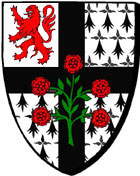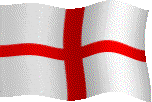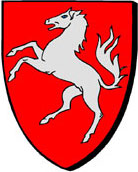
Encyclopédie Marikavel-Jean-Claude-EVEN/Encyclopaedia/Enciclopedia/Enzyklopädie/egkuklopaideia
 |
|||

England Bro-Saoz |
blason ou logo en attente | 
Kent Bro-Gent |
|
Lympne contenant le site de Stutfall Castle Lemanis, Portus Lemanis |
| pajenn bet digoret a, 13 Kerzu 2004 | page ouverte le 13 décembre 2004 |
* forum du site Marikavel : Academia Celtica |
dernière mise à jour 09/07/2025 16:53:33 |
![]()
|
Définition / Displegadur : Angleterre, comté de Kent, sur la rivière East Rother (précédemment la Lympne). Ancienne ville de la tribu bretonne des Cantiaci. |
|
![]()
|
Extrait de la carte Ordnance Survey : Map of Roman Britain. |
![]()
|
Histoire / Istor : Comme l'indique ND, XXVIII-15, "Praepositus numeri Turnacensium, LEMANNIS", Portus Lemanis / Lympne a reçu en garnison, fin IVè siècle, une unité de Belges originaires de la région de Tournai, et commandé par un préfet. Le site a vécu les vicissitudes des autres lieux du kent sur la Manche, et en particulier Douvres, que ce soit à l'arrivée des Romains, durant l'empire romain, ou l'arrivée des Jutes et Saxons, sans qu'on n'en sache guère plus dans le détail. |
![]()
|
Étymologie / Gerdarzh : a) Rivet & Smith, p. 386 ; - Itinéraire d'Antonin, 473-6/7 et 473-10 (Iter IV) : AD PORTUM LEMANIS; - Ravenna 10635 : LEMANIS; - Table de Peuntinger : LEMANIO (peut être aussi LEMAUIO); - Notitia Dignitatum, XXVIII5 : LEMANNIS - Notitia Dignitatum, XXVIII15 : "Praepositus
numeri Turnacensium, LEMANNIS". "The Anglo-Saxon name of Lympne, Liminas, derived from this [Lemanis, plural], was also plural; Lemanis may therefore represent a British plural, perhaps *Leman(n)ia, plural of a derivative *leman(n)ion or the like, though the force of a plural is less clear here than in the case of Dover. Alternatively, Lemanis may represent a British i-stem nominative singular, as in the Scottish Leven and Irish Laune, from *Lemanis; but understood by the Romans as a locative plural, and by the Anglo-Saxons following them.' Perhaps if the base *lim- with plural termination and a sense 'marshes, flooded areas' (discussed in the previous entry) is borne in mind, the question of the plural to which Jackson alludes is answered. IDENTIFICATION. The Roman fort of Stutfall Castle, Lympne, Kent (TR 1134). The Royal Military Canal, which runs past it and was constructed during the Napoleonic wars, follows the old course of the East Rother (formerly Lympne) river. *************** b) Eilert Ekwall : "Limene, Lime 12 (1331) Ch; Limine 1276 RH. Lympne, an old name of the East Rother Sussex, kent, which formely fell into the channel at Rye, and whose course is marked by the Royal Military Canal (Liminaea 697, Liminaea 740, Limenae, Limen, 724 BCS 98, 160, 141, identical with LEAM and LEMON, also with LEVEN (Gael. Leamhain) in Scotland. The name is derived fron the Celtic word for 'elm' found in OIr lem, Weslh llwyf. from this are derived Gaul. Lemonum, (lacus) Lemannus 'Lake Leman' and others. The OBrit base was Lemana (cf. the forms for Lympne town), which became OE Limene or (with velar mutation) Leomene (in LEAM, LEMON). From the river-name Lympne is derived the name of Lympne (lim) town, kent, (portus Lemanis 4,IA, Lemannis c. 425 ND; (of) Liminum 805-10, et Liminum 811 BCS 330, 332). This name is in the plural form (Lemanae, dat. Lemanis, &)." -------------- Observation J.-C. Even : Le nom aurait pu évoluer en breton en *Porzh-Leven. |
![]()
|
Sources; Bibliographie / Eien; Levrlennadur : * Eilert EKWALL: The Concise Oxford Dictionary of English Place-names. Clarendon Press. 1980. * A.L.F RIVET & Colin SMITH : The Place-names of Roman Britain. B.T Batsford Ltd. London. 1982. Envois de : |
![]()
|
Liens électroniques des sites Internet traitant de Lympne / Portus Lemanis : * Site communal : (par défaut) : Salle des fêtes – Conseil paroissial de Lympne * Wikipedia brezhonek : https://br.wikipedia.org/wiki/Lympne * forum du site Marikavel : Academia Celtica * Autres pages de l'encyclopédie Marikavel.org pouvant être liées à la présente : http://marikavel.org/heraldique/bretagne-familles/accueil.htm http://marikavel.org/broceliande/broceliande.htm * solidarité nationale bretonne avec le département de Loire Atlantique : Loire-Atlantique * sauf indication contraire, l'ensemble des blasons figurant sur cette page ont été dessinés par J.C Even, sur bases de GenHerald 5. * Introduction musicale de cette page : Bro Goz Ma Zadoù, hymne national breton, au lien direct : http://limaillet.free.fr/MP3s/BroGoz.mp3 hast buan, ma mignonig, karantez vras am eus evidout go fast, my little friend, I love you very much |
![]()